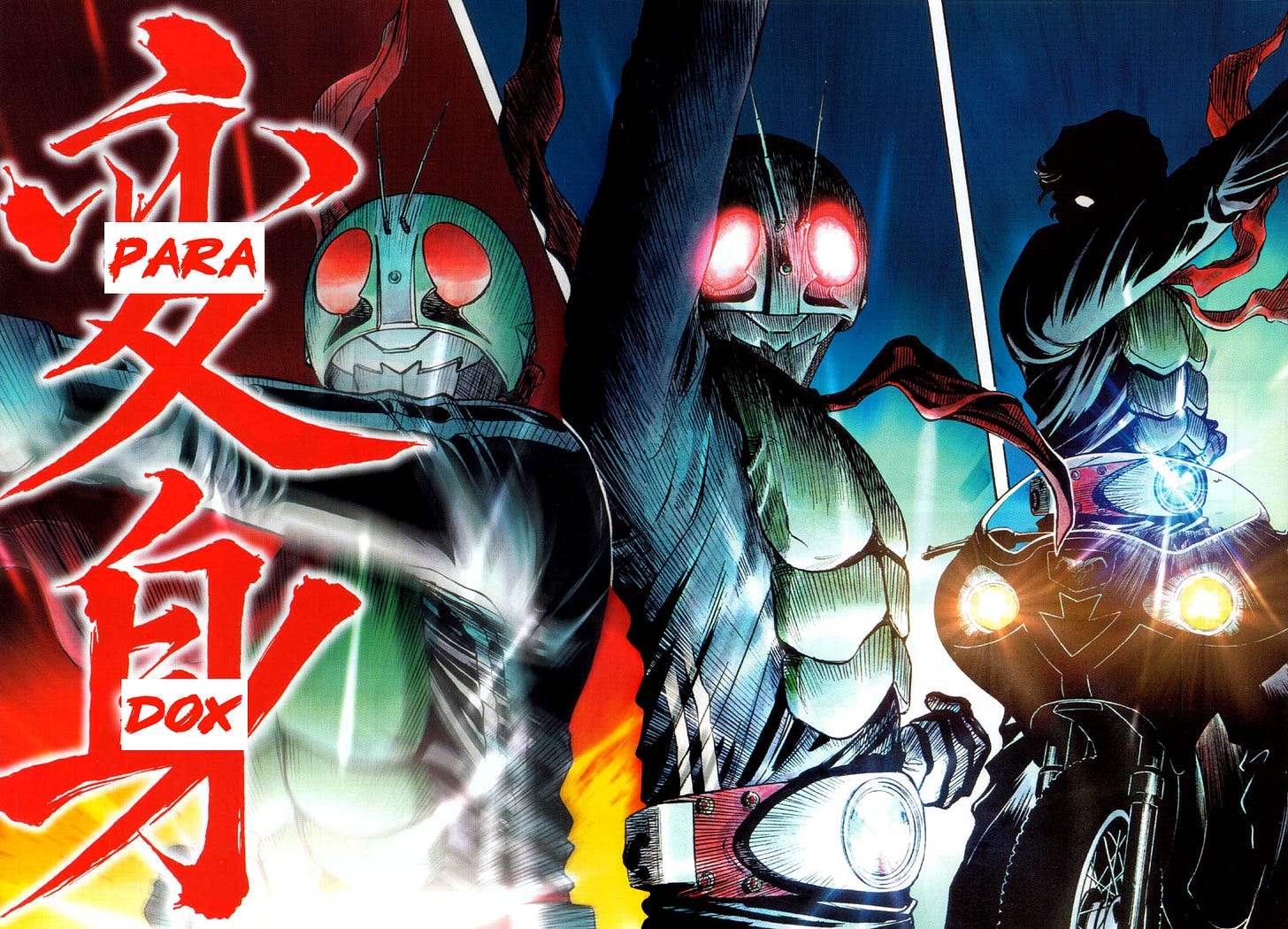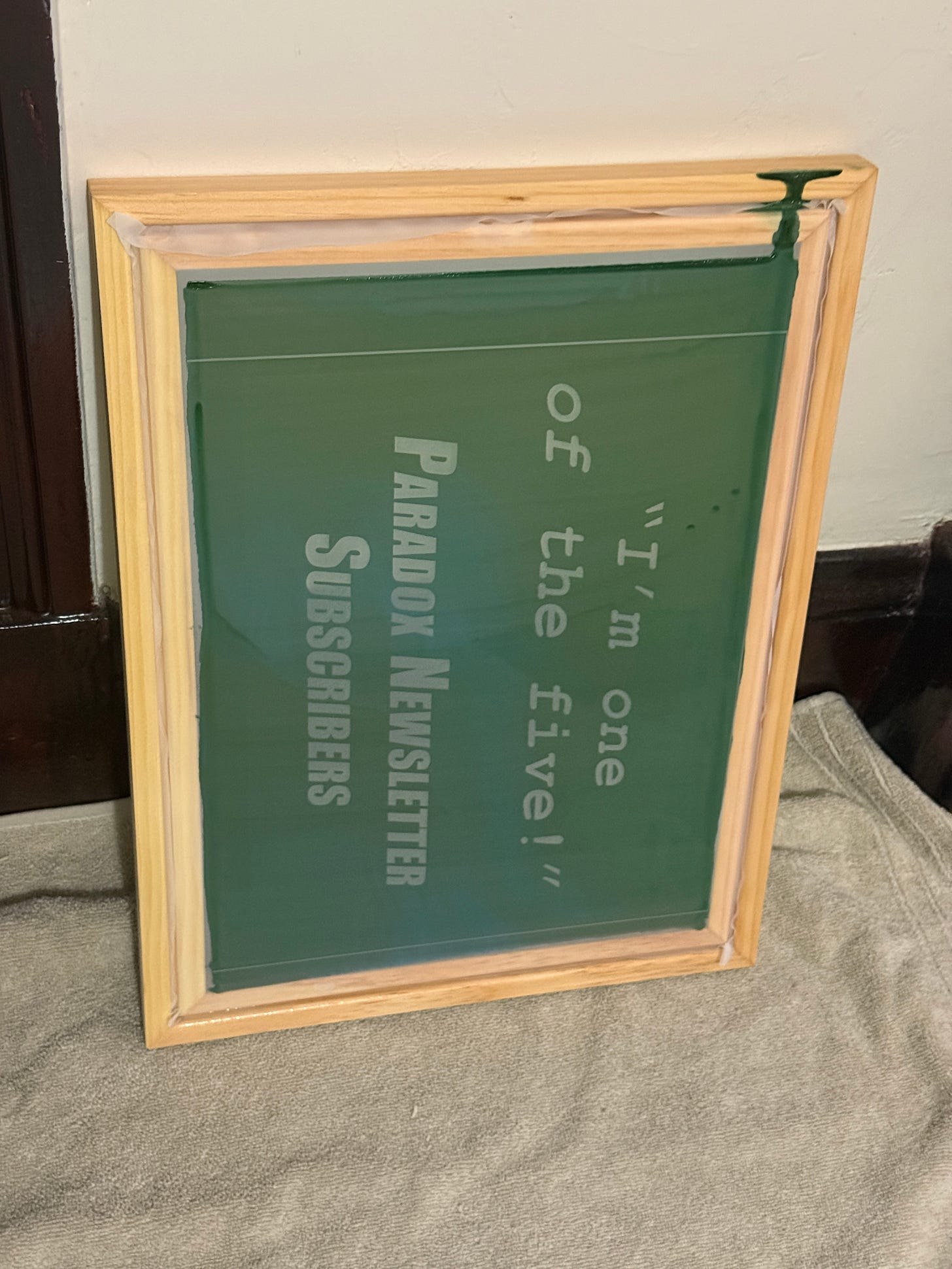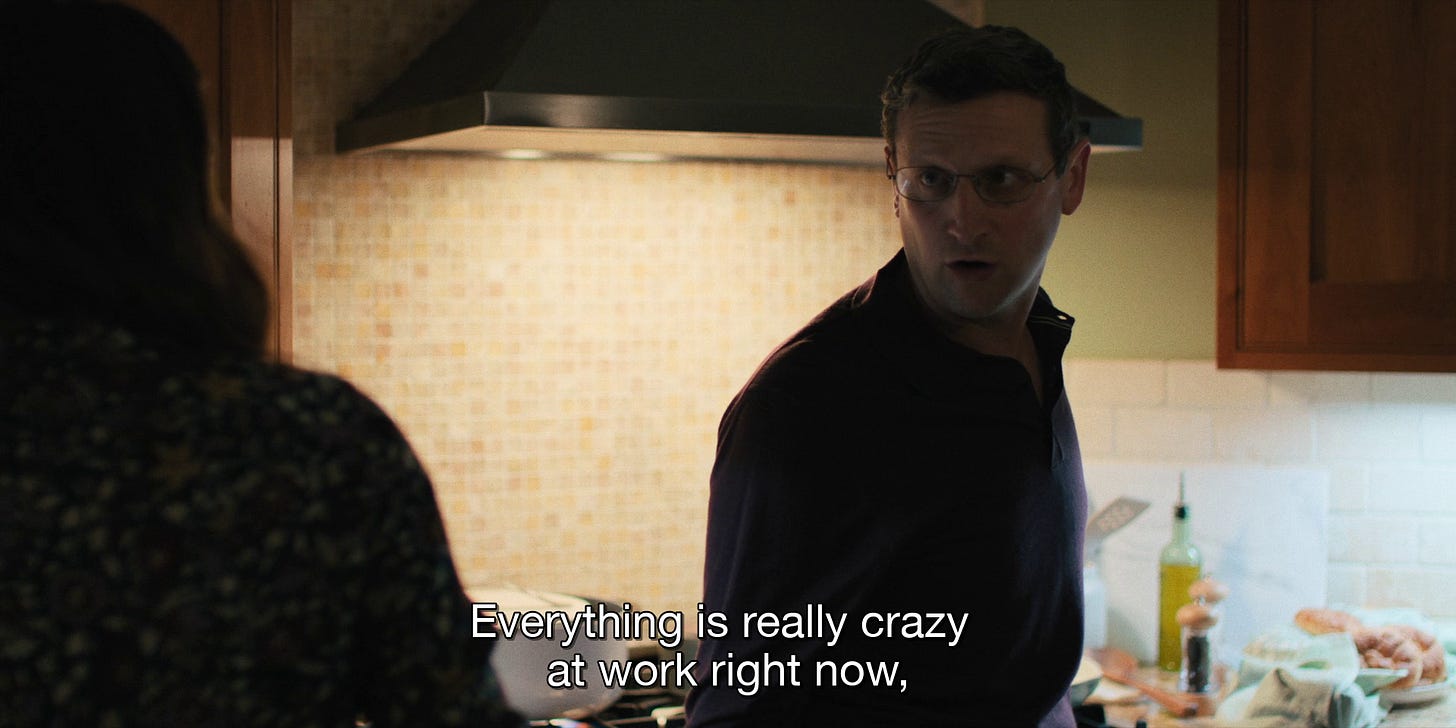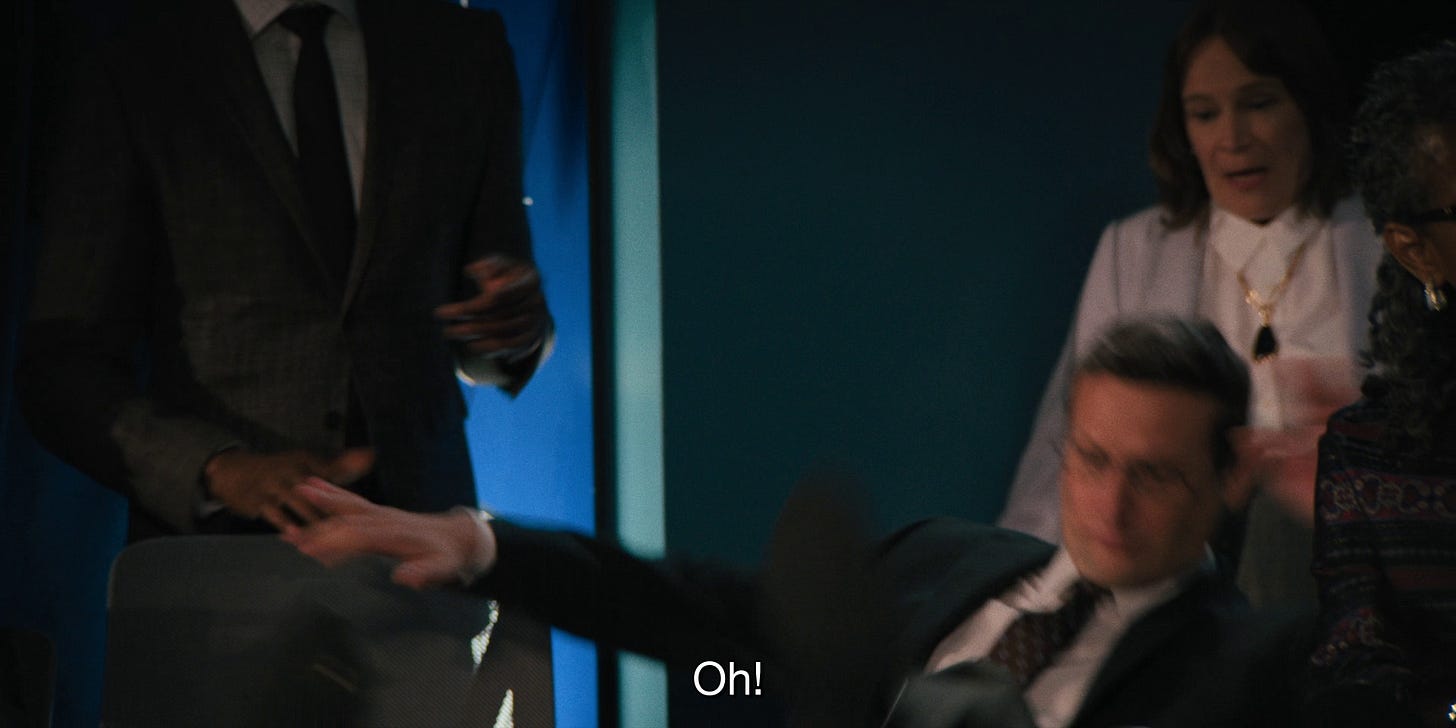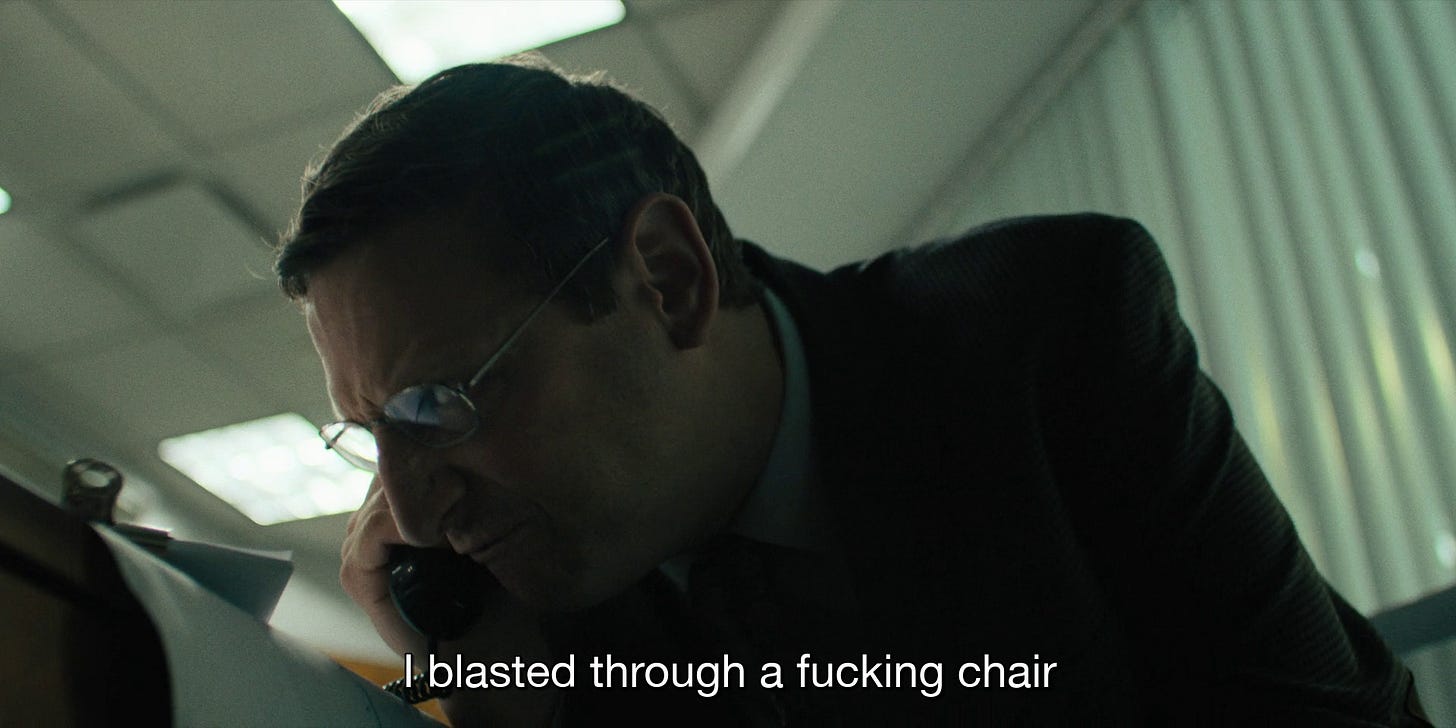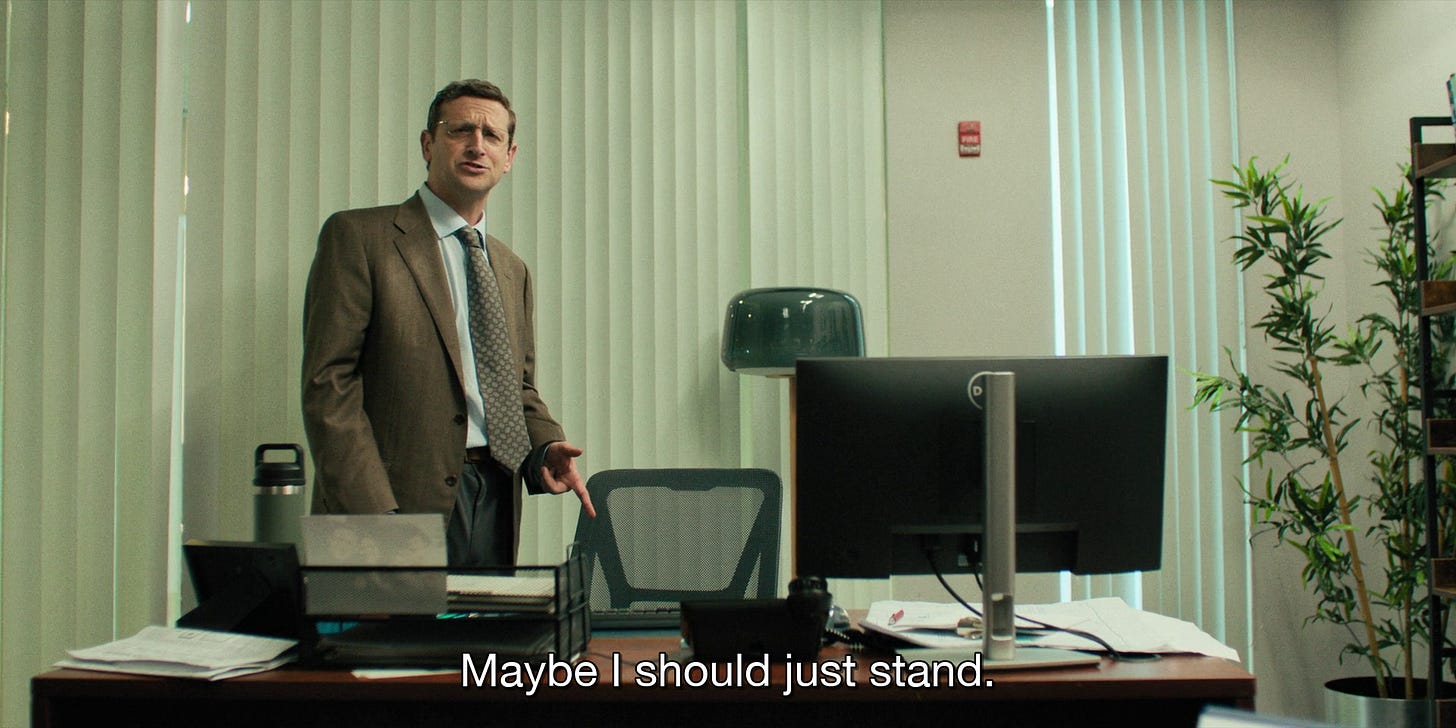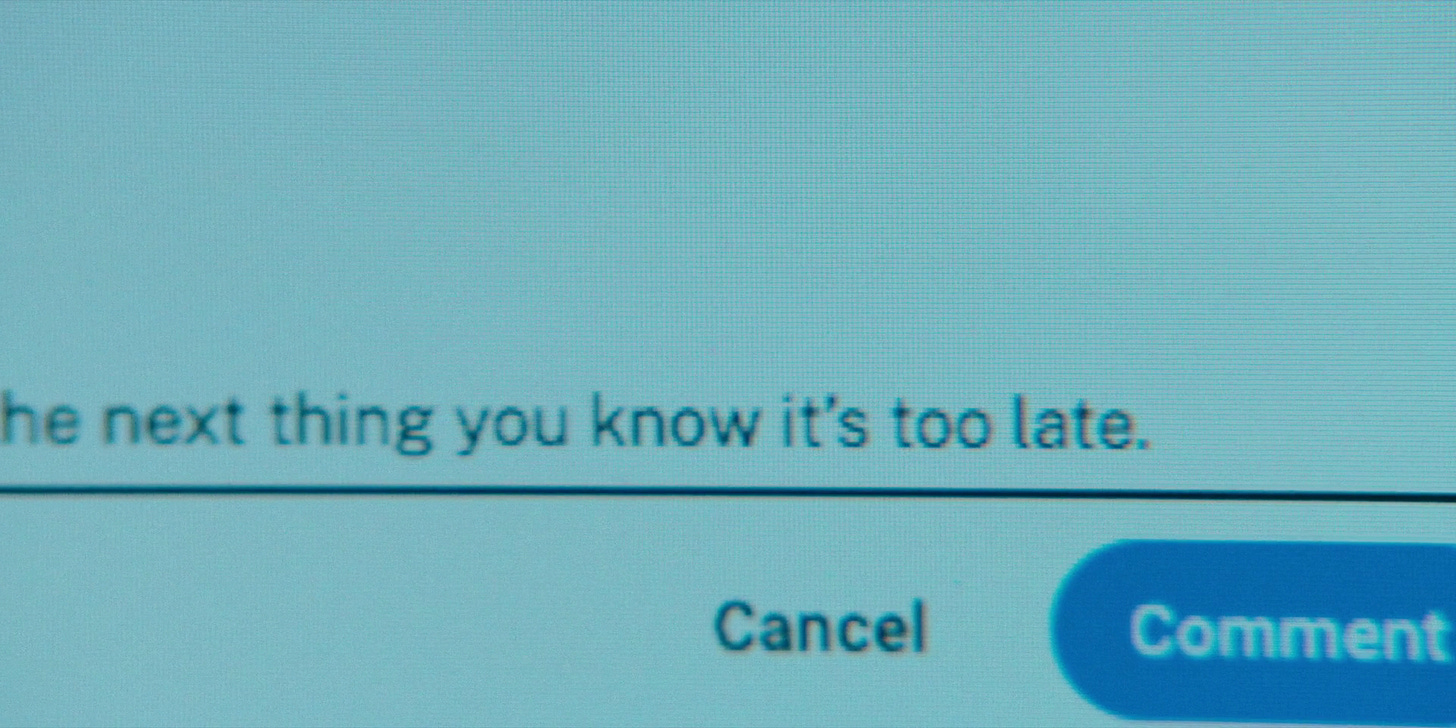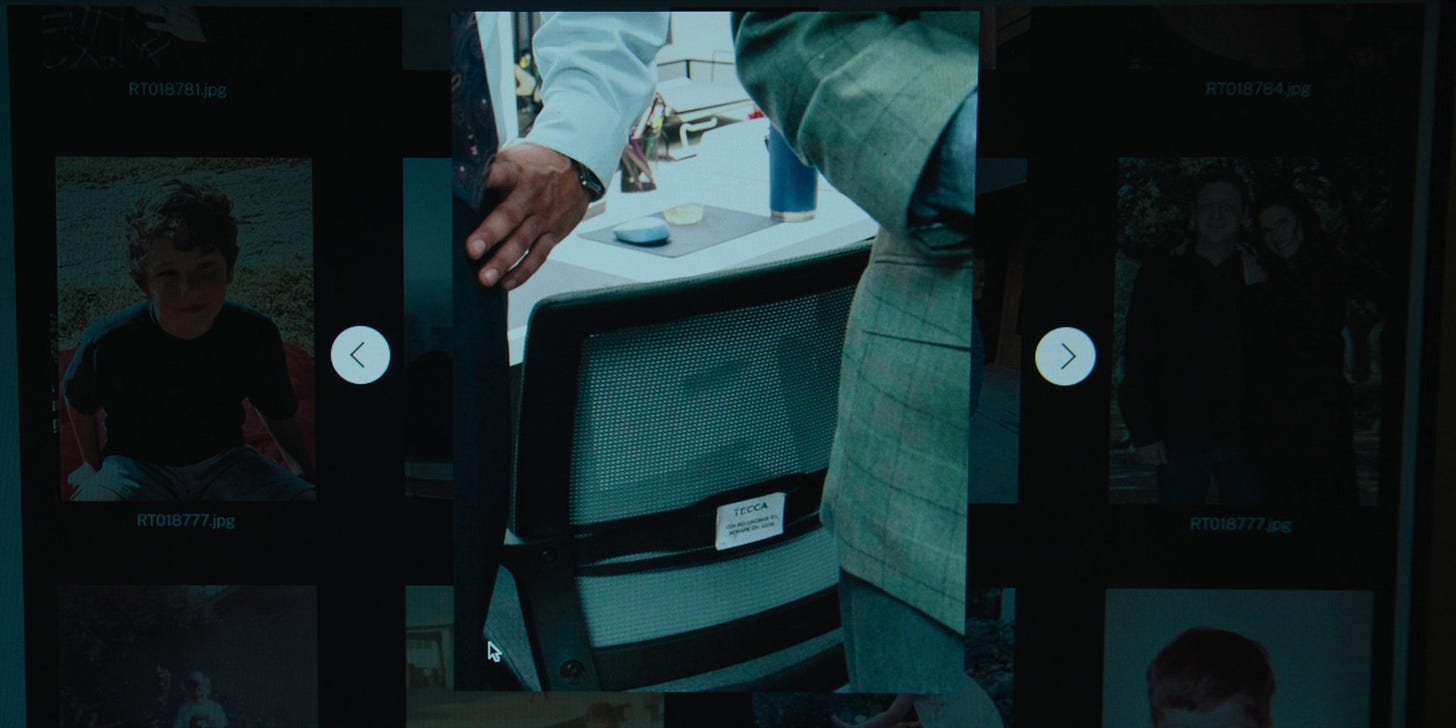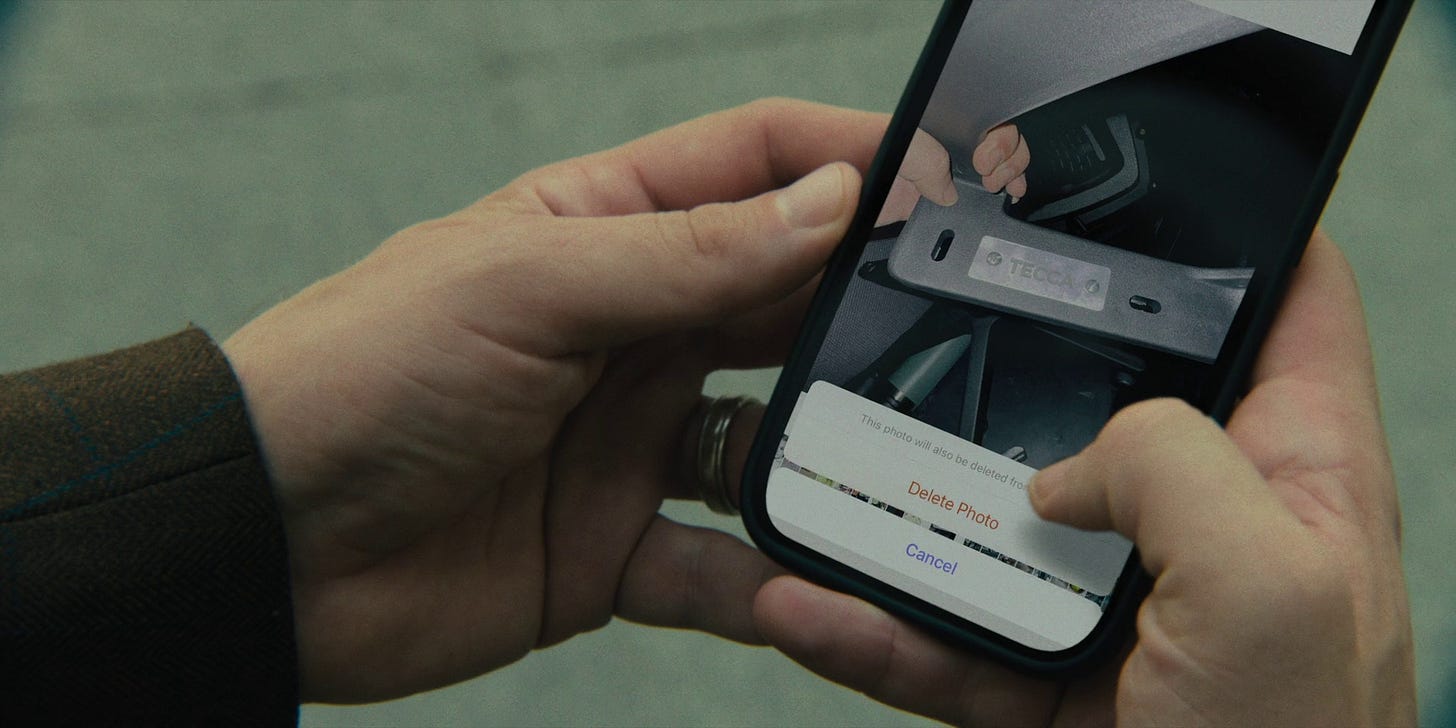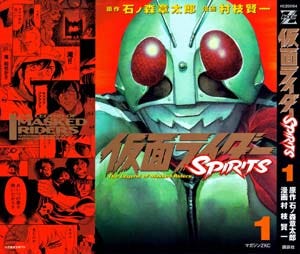Issue #401: Anxiety's Object is Tim Robinson's The Chair Company
Shirt production is in progress. If you want one, you can become a paid subscriber and consult last week’s newsletter for ordering instructions.
I’m not totally confident this screen is going to deliver the level of quality I want, but looking forward to giving it a shot.
Music League wise this week, the round is called “Thanks, Mom and Dad,” where everyone submitted songs “that your parents listened to when you were a kid that you now love.” This was a complicated category with those who have fraught relationships with their parents. But the playlist was as expected.
There’s a really unfortunate error on the Spotify playlist, so I don’t recommend listening to that one. Beethoven’s “Symphony No. 7 in A Major, Op. 92: II. Allegretto” was my favorite submission. Seriously. The Clash and Madonna both got a lot of love. Dire Straits has the most impressive disparity between quality of band name and quality of music, you can decide which is good and which is bad. Someone submitted an insane smooth jazz song by Russ Freeman that’s likely to get cooked in the post-voting comments. There is a really, really thin line between the smooth jazz saxophone tone being acceptable or grating.
Next week is live songs. I’m not submitting these and I hope nobody else does (since I’m posting them here) but you can take these to the bank for your own Music Leagues that have live music rounds.
Can’t embed this Disorder song because it’s age restricted.
“Most of your problems can be solved if you’re faster than anyone else in the 100 meter dash”
100 Meters (2025) is the best animated movie of the year. I believe I’ll come away from 2025 thinking it was a good year for films I like, because it is hard to reconcile the fact that I love this movie so much and yet don’t think it’s the best I’ve seen this year. And No Other Choice (2025) is still yet to come. This movie wasn’t on the event calendar. In fact, if you are reading this newsletter on Monday, October 13th, your last chance to see the movie in theaters will be tomorrow, October 14th. I went into it completely blind, without knowing who directed it, without knowing if this was an original film or adapted from a manga, without watching a trailer. An anime guy running in the post sold me. As it turns out, knowing who was who wouldn’t have helped. This is the first film I’ve seen by director Kenji Iwaisawa and the 2018 manga by Uoto from which it is adapted has not been translated into English.
Even knowing nothing about anything having to do with the film, it has everything. Iwaisawa renders the human body with ridiculous detail and beauty, using rotoscoping to give weight and realism to his characters. The principal characters, Togashi (Tori Matsuzaka) and Komiya (Shota Sometani) approach the sport of track and field with diametrically opposed mindsets. Togashi runs as someone endlessly alone at the front of the pack with a gift for running. Komiya has no talent, but wills himself to the pinnacle of the sport. Despite this familiar dichotomy, 100 Meters avoids the normal shounen trope of staging a conflict between inherent genius and hard work. By the film’s end, Togashi has confronted his motivation again and again, faced career-altering loss, and gone from prodigal son to mediocre journeyman. Komiya’s ascendency doesn’t fulfill him, despite his inhuman motivation driven fundamentally by a gold medal bought from the 100 yen shop awarded on his sixth grade sports day.
Both run in the shadow of the enigmatic Zaitsu (Koki Uchiyama) who is as quotable as any manga or anime character there has ever been. Togashi runs against and eventually alongside the older Nigami (Jun Kasama), a track and fielder who deals with career-threatening injury in high school. From Slam Dunk’s (1990) Rukawa to Kuroko no Basket’s (2008) Kiyoshi to Harukaze Mound’s (2025) Ibuki, this is a favorite trope of mine. 100 Meters handles sports injury with care and nuance.
There is also Kaidō (Kenjiro Tsuda), a major character in the film’s final act, who wears one of my favorite pairs of Oakleys — Clifdens. I don’t have a pair myself.
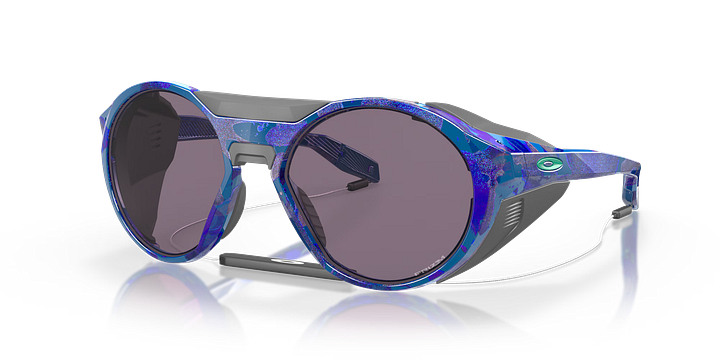
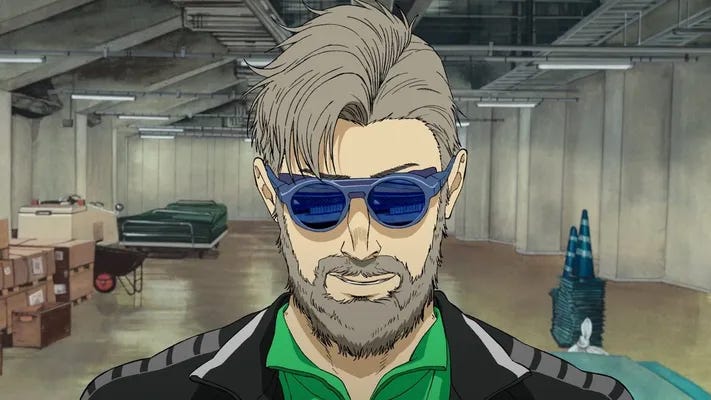
100 Meters is full of detailed reproductions of actual sporting gear from Oakley to Nike to Adidas. In the manga, though noticeably absent from the anime, there are unbranded Nike Huaraches. Do people run in those?
Kaidō delivers another view of running in the film, running away from reality after confronting it, to overturn it. Though this is a major theme of 100 Meters, the wide range of attitudes toward running gives this film some weight that is commonly missing from comparable shounen works.
I might have already given away too much, but this movie is a must see. I think, even for those who don’t usually like this kind of stuff, 100 Meters will deliver. This is the absolute best sports anime has ever been. I’m dying to see it again and hoping sincerely for someone to pick up the manga and get it translated into English.
Once it’s available for home video, I’ll be writing about it again in more detail.
Anxiety Run Amok in The Chair Company
I want to start with an anecdote that arose while preparing to write this segment. Needing to consult my volume of Lacan’s Seminar X: Anxiety (2004), I set out looking for it. I have a designated shelf for my Lacan seminars, of course, but at any given time any number of volumes might be stashed in other piles. Piles that are assemblages of books dedicated to various writing projects. So, I check the Lacan seminar shelf, it’s not there. I start looking through the array of loosely themed piles that are on my larger bookshelf, not there. There’s a few other places to check. I have four sets of shelves of various sizes set apart from my main shelf, so I check those, check throughout the house. Nothing. At various points, I am certain, I remember seeing it in some such pile or another and but still can’t find it. At this point I am a little panicked. Am I going to have to buy a new copy? If I look at a PDF, it won’t have my copious notes. Returning to my desk, from where I departed, I notice a pile of books on the desk. At the bottom of the pile, there it is. Anxiety is always close at hand. It is “the appearance … of what was already there” (75).
Right at the outset of the seminar, Lacan begins with one of his provocative statements, “something had effectively fallen into place in your minds concerning the structure which is so essential and which is called the fantasy. You’ll see that the structure of anxiety is not far from it, for the reason that it’s well and truly the same” (3). Lacan sets up his inquiry by orienting anxiety as a symptom of a particular kind. To that end, he returns to the symptom to define symptom in a characteristically middle-Lacan fashion, “[t]o be impeded is a symptom” (10), further justifying his choice by examining the etymology of “impede.” He says, “Impedicare means to be ensnared … I’ll tell you straight off that the snare in question is narcissistic capture” (10). The symptom as it relates to anxiety, then, is that which arises from this extimate closeness:
The fracture that results from this in the specular image comes to be what specifically gives its support and its material to the signifying articulation that, on the other plane, the symbolic plane, is called castration. The impediment that arises is linked to this circle that makes for the fact that, with the same movement by which the subject advances towards jouissance, that is to say, towards what is furthest from him, he encounters this intimate fracture, right up close, by letting himself be caught, along the way, by his own image, the specular image. That’s the snare. (11)
This brings me to the latest in prestige comedy, The Chair Company (2025). From Tim Robinson and Zach Kanin, the show will be familiar to those who have seen the duo’s I Think You Should Leave (2019) or Robinson’s Friendship (2024) directed by Andrew DeYoung. DeYoung also handles directing duties for this first episode of The Chair Company, “Life goes by too f**king fast, it really does.”
Robinson’s “comedy thriller” is, watched scene by scene, almost indistinguishable from I Think You Should Leave. There’s an ongoing bit involving a wheelbarrow, given some room to breathe that the sketch format would not have afforded it. An unnamed janitor who confronts Ron Trosper (Tim Robinson) believing Trosper to be someone attempting to stop him from using a wheelbarrow indoors.
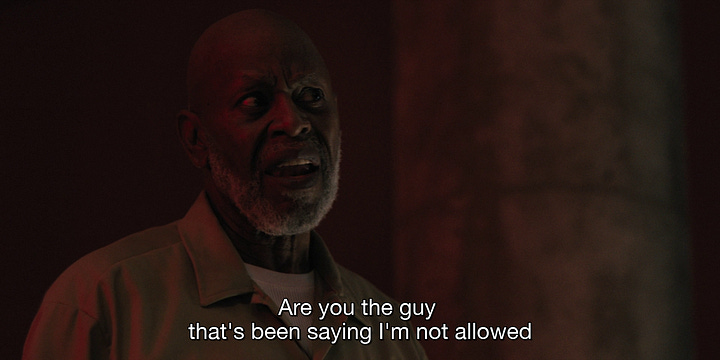
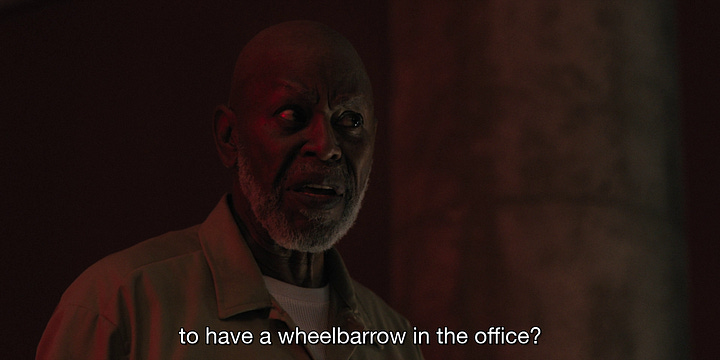
The janitor suggests that this wheelbarrow is only used inside, as the alternative, a wheelbarrow used both outside and inside, would be “dangerous” and “disgusting.”
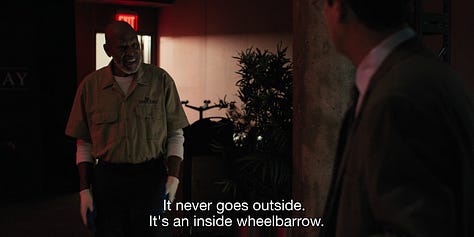
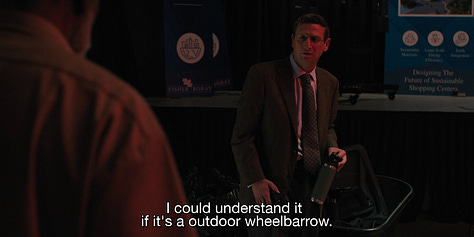
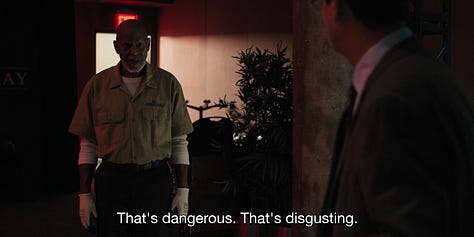
Of course, Trosper has no interest or investment in this wheelbarrow question. However, he does end up catching the janitor using his inside wheelbarrow outside.

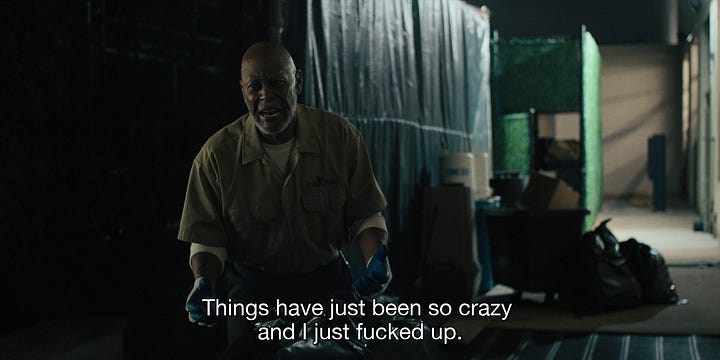
Aside from this gag being funny in the way most Tim Robinson jokes are funny, it is also a blueprint for understanding what the show’s first episode is about. The janitor is anxious about the discovery of the wheelbarrow’s dual-usage and believes himself to be persecuted by many despite the fact that, as far as the audience can tell, only one person has objected to his using of the wheelbarrow. He is a reflection of Trosper, unable to let go of his anxious thoughts but furthering their cause because of a situation that is “so crazy.”
Trosper’s “crazy” situation is simple: he sat in an office chair that then immediately fell apart.
In his words, “I blasted through a fucking chair at work yesterday in front of all my bosses and my employees and everybody laughed at me ‘cause I’m a fuckin’ joke.”
In the immediate aftermath, nobody laughs at Trosper. It is only after he himself makes a joke about the incident the following day that the laughter of his employees is unleashed.
Trosper obsesses over the incident, his fixation exaggerated by the difficulty of contacting the company who manufactures the chairs, Tecca. He makes various claims about why he wants to contact the manufacturer, ranging from the selfless motive of helping others avoid his fate to the need for an apology. Ultimately, however, his search for the cause of his fall is an attempt to undo it. He cannot release himself from the incident’s hold on him, not until the end of the episode at least.
Anxiety is an impediment for Trosper. Indeed, it impedes him at the level of thought. The recurrences of his fall return unexpectedly, crowding out the possibility of thinking anything else. While he should focus on his son’s basketball scouting or his daughter’s imminent marriage, his falling out of the chair prevents even that. The show does a great job of conveying this. In one scene, Trosper is lying awake as the camera pans downward into a repetition of his falling from a much closer angle than when the audience first sees it.

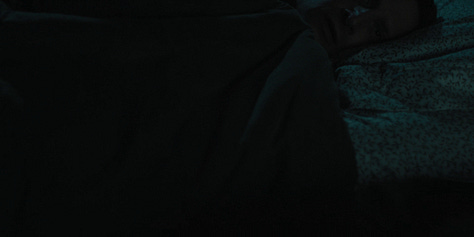

In another, Trosper works on a slide show for his daughter’s rehearsal dinner moved by the song “I Have a Name” by Jim Croce. He tears up from the combination of the song itself and a comment on the youtube video, “life goes by so fucking fast.” He leaves a comment of his own, “It really does go by so fucking fast. You think you’re gonna do something with your life and the next thing you know it’s too late.”
Something takes him out of this reverie, though: the chair company, Tecca.
Instead of finishing the slide show, he leaves the house and visits the address on the sticker. He cannot move past his embarrassment and the anxiety it has afflicted on him. Lacan suggest, “[w]hat we were waiting for, when all’s said and done, and which is the true substance of anxiety, is that which deceives not, that which is entirely free of doubt” (76). Trosper’s anxiety has only cathected in this incident, but his more primal fear is the meaninglessness of the family and career he has cultivated across the life that has moved “so fucking fast.”
After confronted with a failure to fulfill some of his obligations at work, Trosper finally seems to end his search for the origin of the offending chair in a decisive deletion of photos of his phone.
Before the episode ends, though, he is pulled back into the conspiracy attacked in the parking lot by someone who demands he “stop looking into the fuckin’ chair company.”
Anxiety is always close at hand.
The Best Films Are on Arrow Video [Not Sponsored]
If you are a fan of cult movies, particularly the kind of movies I write about most often, the best bang for your buck in online streaming is going to be Arrow Video’s streaming service. I have been using it intermittently since July, when I signed up to watch Battles Without Honor and Humanity (1973).
This weekend, I really went in. I watched Crime Hunter: Bullets of Rage (1989), Phantom of the Mall: Eric’s Revenge (1989), .com for Murder (2002), and two from Herschell Gordon Lewis, Something Weird (1967) and Blood Feast (1963). These movies were pretty great. If you are only going to watch one, certainly go for Crime Hunter. Entirely a Japanese production, the movie is set in Los Angeles’s Little Tokyo. The setting avoids the implausibility of guns in Japan, but director Shundō Okawa also chose a decisively international musician for the film’s most memorable needle drop: Hitomi Tohyama.
As I learned a little more about Tohyama in preparation for writing this, and listened through her discography, I came to the decision that she’s very underrated. She draws from a wide range of American and Japanese influences with a more immediate familiarity with American music — she grew up in the Bay Area. Her music is a reversal of Okawa’s view of the United States, a distorted pastiche meant to lubricate his ambitious action shoot outs.
Watch Crime Hunter any way you like, but it’s on the Arrow streaming service right now along with a bunch of other awesome stuff. Your October horror movie viewing is sorted if you want it.
Weekly Reading List
Some pro vintage cube action is available on youtube from Magic: Online’s Championship Showcase.
As a New Englander, I love tuning into Phantom Gourmet whenever I am flipping channels on my cableless, over the air antenna connected TVs. It is an institution of culinary journalism here, though maybe it is more honest to call it well meaning promotion for local restaurants. They don’t tend to lead me astray, though. I didn’t realize they were on youtube, so I’m happy to start watching there.
I have been railing against Sysco for years, but I enjoyed this overview of their business practices and impact on U.S. casual dining.
Submitted by newsletter intern and graphic designer Spencer Valadez, presented without additional comment.
I’m reading Kamen Rider Spirits (2001). It is available on the internet somewhere.
Event Calendar: Doing Free Promotion for Netflix
Netflix has some movies coming out that look good. Let’s enrich the social fabric of pop culture by all watching the same stuff at the same time.
Until next time.


